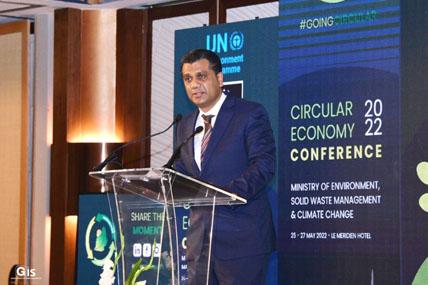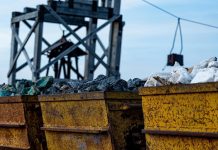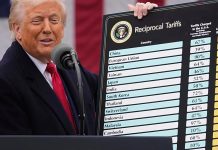Africa-Press – Mauritius. Government has a key role to play in moving from our overtly linear model to a circular model, and this transition will only happen if the goals and rules are well established, incentives are in place, and stakeholders are mobilised and educated.
The Minister of Environment, Solid Waste Management and Climate Change, Mr Kavydass Ramano, made this statement, today, during the opening ceremony of a three-day National Conference on Circular Economy, which is being held in hybrid format at Le Méridien Hotel in Pointe aux Piments.
The Minister of Finance, Economic Planning and Development, Dr Renganaden Padayachy; the Minister of National Infrastructure and Community Development, Mr Mahendranuth Sharma Hurreeram; the Ambassador of the European Union (EU) to the Republic of Mauritius, Mr Vincent Degert; and other personalities were present on this occasion.
The objectives of the Conference are to: present the current state of Circular Economy in six specific sectors in Mauritius; identify key areas of challenges and opportunities in moving to a Circular Economy Model in the six sectors; promote awareness on the concept and the benefits of Circular Economy; and make recommendations on enabling measures for the implementation of Circular Economy and the way forward.
Minister Ramano highlighted that the three-day event provided the ideal opportunity to bring together representatives from all spheres so as to share knowledge and experiences on the best way to take forward the agenda for circularity.
The Environment Minister underlined that this Conference was testimony of Government’s commitment to “build back better” while sustaining the efforts for a “transition écologique” by stepping up action on circular economy.
He observed that it was only a circular model that would provide a pathway to overcome resource scarcity and overuse, while allowing for economic growth.
According to him, the concept of the circular economy used nature as its model and decoupled consumption from growth by closing supply loops to keep materials in circulation at their highest value for as long as possible.
“This,” he pointed out, “would mean that products would no longer have a life cycle with a beginning, middle and end.
” He added that when materials stopped being used, they returned to a previous position in the economic cycle, and as such, circular economy used fewer resources, created less waste and pollution and emitted less greenhouse gas.
Furthermore, Minister Ramano underscored that, in order to move to the next level, there was a need to look beyond the traditional 3R framework (Reduce, Reuse and Recycle) and come up with a new framework which would go much beyond waste management and included: Refuse; Reduce; Rethink; Reuse; Repair; Refurbish; Remanufacture; Repurpose; Recycle; and Recover.
He also stated that it was necessary to transition to a circular economy model which was a win-win model for all to boost growth, address climate change and create new jobs at the same time.
As for Minister Padayachy, he remarked that one of the main priorities was to tackle the issue of climate change and as such, Government was determined to make Mauritius a greener, low-carbon economy that was resilient to growing climate risks.
“Sustainable development,” he indicated, “is also a priority of Government and this transition inevitably involves the implementation of a circular economy model.
”
He also remarked that sustainable development would be one of the major themes of the 2022-2023 budget, and recalled that several measures were already announced in the previous budgets so as to move towards a circular economy.
For his part, Ambassador Degert indicated that the EU and Mauritius had been collaborating for the past 51 years, and stressed that the EU was presently financing no less than 20 projects in relation to environmental issues.
He reminded that the EU’s support to Mauritius included, among others: sensitisation campaigns on food wastage; a study on the greening of the public sector; financing of an energetic audit in Rodrigues; and a sustainable island project for the tourism sector.
For More News And Analysis About Mauritius Follow Africa-Press







